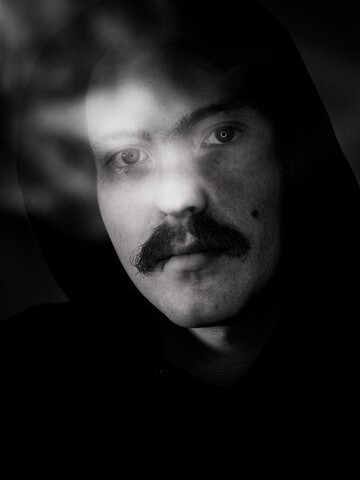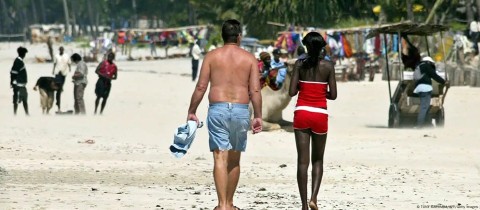A Tropical Illusion: Kenya Escorts and the Hidden Realities
To the outside world, Kenya’s coastline is a dream a golden ribbon of sand lapped by the warm waters of the Indian Ocean, lined with swaying palms and resort villas promising escape. Tourists arrive from across Europe and beyond, drawn by adventure, wildlife, and affordable luxury. But hidden behind the brochures and Instagram filters is a world no travel guide will ever advertise a complex, often exploitative economy rooted in desperation, dreams, and the commodification of bodies.
In towns like Mombasa, Diani, Malindi, and Watamu, Nairobi a parallel tourism industry has flourished one where the lines between romance and transaction, agency and exploitation, intimacy and inequality blur into a murky moral grey. Here, sex is not just a private act it is a survival strategy, a currency, and for some, a weapon. And it is sold, bought, negotiated, and taken in ways that rarely respect consent or dignity.
This is the story of the sex economy on Kenya’s coast not just a tale of tourists and workers, but of global power imbalances, social neglect, and resilience. It is also the story of how a paradise becomes fractured, and how the legacy of colonial inequality continues to play out through flesh.
Mombasa Nights and Unspoken Deals
Mombasa’s Old Town comes alive at dusk. The call to prayer echoes from the minarets, tuk-tuks rattle down narrow lanes, and the smell of grilled octopus mingles with the humid air. As the sun disappears behind Fort Jesus, a different kind of commerce awakens. On the beachfront road near Nyali, foreign men stroll slowly, watching. Some are alone. Others are accompanied by local girls no older than sixteen, dressed in tight jeans and borrowed confidence.
“I come here every winter,” says Jürgen, a 61-year-old German pensioner sipping Tusker beer at a hotel bar. “It’s warm. It’s cheap. And the girls are friendly. They don’t play games like in Europe.”
Next to him sits Diana, 19, who listens without expression. She has been seeing Jürgen for three weeks. He gives her money, buys her clothes, and takes her on boat trips. “He thinks I love him,” she tells me later, “but this is just business.”
Diana grew up in Kilifi. Her parents are farmers who struggled to afford school fees. At 16, she moved to Mombasa to work as a house help. When the employer’s husband began harassing her, she left. “A friend told me I could make money with white men. That they like brown skin. At first I hated it, but now I’m used to it.”
Diana is one of thousands of young women along Kenya’s coast who navigate the blurred lines of sex work. Some call themselves “girlfriends,” others say they’re “dating,” and some openly identify as sex workers. What unites them is economic precarity and the cultural silence that surrounds their choices.
The Beach Boys’ Mirage
Just as women face the realities of foreign male sex tourism, young men too have carved out their own niche. On the shores of Diani and Watamu, “beach boys” slim, tanned, dreadlocked wait like sentinels near the surf, flirting with white women decades their senior. They offer boat rides, tour guiding, massages and eventually, companionship.
“They call it love, but it’s really survival,” says Kevin, 24, a self-proclaimed beach boy from Ukunda. “Some mzungu women come here looking for sex, others for fantasy. Either way, they pay.”
Kevin’s latest “girlfriend” is a 58-year-old Swiss woman who stays in Kenya for two months every year. She rents a beach house and pays him an allowance. “She thinks I love her. I pretend I do. But if I don’t, I lose everything.”
Unlike their female counterparts, beach boys are often seen as empowered exotic Casanovas living the dream. But the truth is more complex. Most of these young men come from broken homes, have little education, and live in crowded slums. The relationships they pursue are rarely about love, and more often about escape from poverty, obscurity, and hopelessness.
Many beach boys hope to be taken abroad, imagining a better life in Europe. Some succeed. Others are used, abused, and dumped. A few are trafficked forced into sex work, stripped of documentation, and silenced.
Children on the Frontline
One of the darkest aspects of Kenya’s sex tourism industry is its impact on minors. Despite laws banning sex with under-18s, child prostitution is rampant. In tourist towns, children are lured into sex work by local pimps, often with the complicity or desperation of their families.
According to a report by ECPAT and UNICEF, thousands of children in coastal Kenya are involved in commercial sexual exploitation. Girls as young as 12 are taken to villas rented by European men. Boys are used too, though their abuse remains even more hidden.
In a small village outside Malindi, I met Sister Margaret, a Catholic nun who runs a shelter for rescued girls. “Some parents encourage it,” she says bitterly. “They see white men as opportunity. They sacrifice their daughters for food and school fees.”
Sister Margaret showed me drawings made by girls in therapy stick figures with tears, pictures of blood, a man with a camera. “Some of the clients film the abuse. Some post it online.”
Few perpetrators are caught. Even when arrests occur, cases collapse due to corruption or lack of evidence. In many instances, foreign abusers are quietly deported rather than prosecuted.
HIV, Silence, and Stigma
The sex economy brings not just emotional scars but physical consequences. The prevalence of HIV among sex workers in coastal Kenya remains significantly higher than the national average. Though condom distribution programs exist, many clients refuse protection especially foreign ones who offer more for unprotected sex.
“They tell us they’re clean,” says Amina, a 32-year-old sex worker from Mombasa. “But some don’t care. They offer double for ‘natural.’ If you say no, they find another girl.”
Healthcare access is limited. Clinics are few, underfunded, and stigmatized. Sex workers, especially those without IDs, are often turned away or treated with hostility. Mental health services are virtually non-existent.
Compounding this crisis is misinformation. Many girls believe white men cannot transmit disease. Others think skin color affects HIV risk. Peer education programs try to combat these myths, but reach remains limited.
The Legal Labyrinth
Kenya’s laws around sex work are contradictory. While prostitution itself is not illegal, many related acts soliciting, brothel-keeping, and living off the proceeds are criminalized. This puts sex workers in a constant state of legal limbo. Police abuse is rampant.
“I’ve been arrested five times,” says Rachel, 29, who works in Malindi. “They don’t care about the law. They take your money or your body. Sometimes both.”
When foreign tourists are involved, the legal system grows even more opaque. NGOs report cases where local girls report abuse, only for the perpetrator to vanish after bribing officials. “There is no justice,” says lawyer Samuel Wekesa. “Only money and silence.”
Despite this, sex workers are organizing. Grassroots unions like the Bar Hostess Empowerment and Support Programme provide legal aid, medical referrals, and training. Their reach, however, is limited by funding and stigma.
The Colonial Hangover
What drives this economy at its core is inequality global, racial, historical. Many of the European men who arrive in Kenya’s coastal towns carry with them not only cash, but a colonial mindset. They expect deference. They assume ownership. They equate money with control.
“They think we are objects,” says Salma, a former hotel receptionist who now works independently. “They don’t see people. They see prices.”
This mentality is rooted in centuries of exploitation. Coastal Kenya was once a hub of the Arab slave trade. Later, it became a prized possession of the British Empire. Today, it hosts resorts owned by Italians, Germans, and Belgians. In many ways, little has changed—except now, the trade is cloaked in consent, and the price is negotiated in whispers.
Voices of Resistance
Yet even within this bleak portrait, there are sparks of defiance. Some former sex workers have become activists. Others start small businesses. Local organizations offer training in tailoring, catering, and beauty therapy.
Fatma, 35, once worked as a “bar hostess.” Now she teaches other women how to braid hair. “I didn’t choose that life. I survived it. Now I help others escape.”
Youth centers like Kecosce in Kilifi train boys in IT skills, videography, and entrepreneurship, hoping to break the cycle before it begins. Social media too has become a tool. TikTok, Instagram, and YouTube now host stories from survivors, advocates, and reformers.
International pressure is also growing. The European Union has increased funding for anti-trafficking initiatives in East Africa. Interpol now partners with Kenyan police to track known sex offenders traveling abroad. But progress is slow, and often too little, too late.
What Paradise Costs
Kenya’s coast remains beautiful. But beauty masks contradiction. For every tourist lounging under a palm tree, there is someone behind the scenes cleaning, serving, selling sometimes their labor, sometimes their bodies.
The question is not whether sex tourism exists. It does. The question is how we respond. Do we look away? Do we pretend it’s consensual because money was exchanged? Or do we acknowledge the power imbalances that make consent impossible?
Until economic justice reaches the beaches of Mombasa and the slums of Ukunda, the cycle will continue. Until laws protect the exploited more than the exploiter, silence will reign. And until we confront the hunger that drives people to sell what they do not want to give, this paradise will remain broken.













